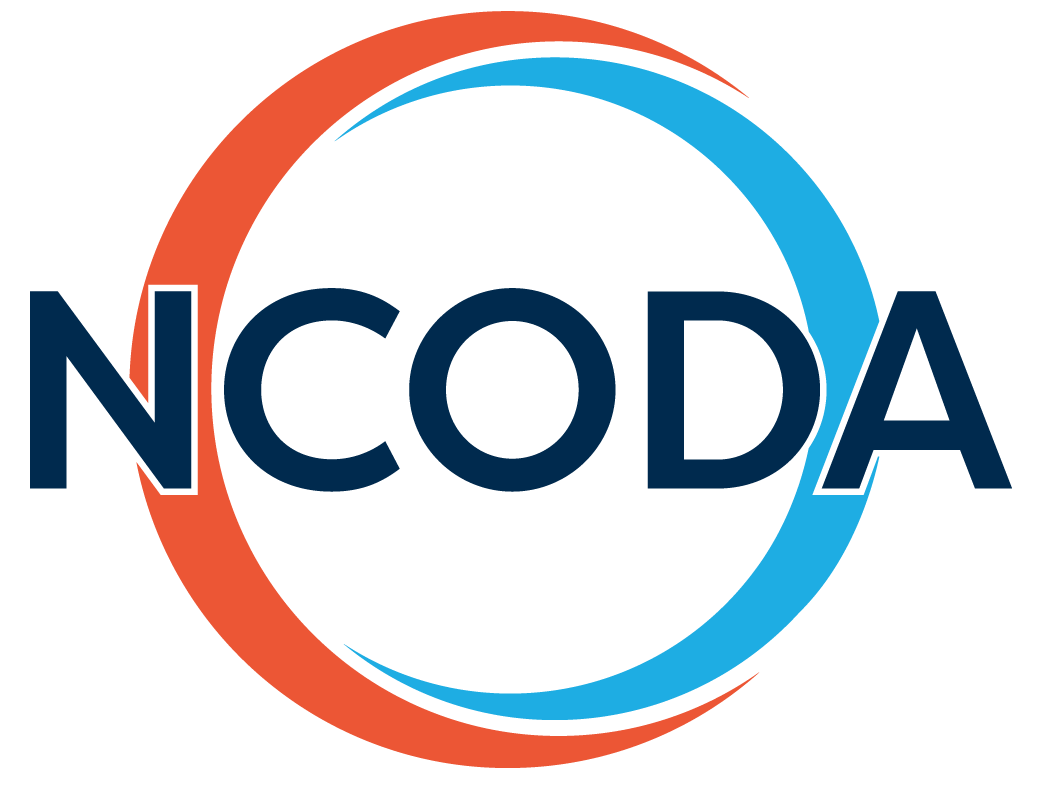NCODA partners with Prime Therapeutics to offer accreditation for its new MIP program
Since 2016, “Going Beyond the First Fill” has been NCODA’s credo and the primary focus of its Mission to create a patient-centered, safe, high-quality, comprehensive program to meet the needs of the oncology community.
And now, thanks to a unique opportunity that combines the scope and influence of Prime Therapeutics’ radically different pharmacy benefit manager (PBM) program with the focus and efficacy of NCODA’s radically different pharmacy accreditation program, the world of oral oncolytics is about to enter a whole new era.
Prime Therapeutics recently launched IntegratedRx™ Oncology — a PBM program that allows practices to keep oral oncolytic prescriptions in-house rather than send them out to centralized mail-order pharmacies. Members can receive their medicine through their clinic’s integrated pharmacy, where the provider and pharmacist are part of the same team, allowing for direct lines of communication.
Prime’s goal is end-to-end coordination across the entire treatment pathway, helping improve adherence, shortening time to dispense, and creating a better member and provider experience from the first fill through the last fill.
The partnership model makes Prime Therapeutics the only large PBM that doesn’t require patients to use a mail-order pharmacy. It will enable patients to receive cancer medications up to two days faster than traditional PBM models.
Prime believes IntegratedRx™ will result in significant savings for plan sponsors through lower medication costs and waste reduction through better integration.
Prime’s regional Blue Plan clients nationwide will have the option to join IntegratedRx™ Onclology beginning in January 2022. Between 300 and 600 oncology practices will be eligible to participate in the program.
At present, around a dozen plans have committed to joining IntegratedRx™.
“Most of our health plans have been very enthusiastic.” said Joe Leach, MD, Senior Vice President and Chief Medical Officer at Minnesota-based Prime Therapeutics. “We expect very broad participation once we roll IntegratedRx™ Oncology out to scale.”
ACCREDITATION OPTIONS
Pharmacy accreditation is a key aspect of IntegratedRx™ Oncology, and that’s where the new NCODA Center of Excellence (CoE) Medically Integrated Pharmacy (MIP) Accreditation Program comes in.
Participants in IntegratedRx™ Oncology must receive accreditation through either NCODA CoE MIP, URAC or Accreditation Commission for Health Care (ACHC) within one year. But while URAC and ACHC accreditations focus primarily on large mail-order pharmacies, NCODA CoE is specifically designed for MIP practices.
It’s a pivotal moment for both NCODA and Prime Therapeutics.
“This collaboration with Prime Therapeutics allows us to scale the concept of putting medically integrated pharmacy at the top,” said Michael Reff, RPh, MBA, Founder & Executive Director of NCODA.
“I think it’s going to be a great partnership,” Leach agreed. “The timing is perfect. NCODA is rolling out a product that we need and we’re rolling out a network that will help raise awareness of the accreditation process that NCODA is building. I’m excited to see what we can do together.”
DEVELOPMENT BEGAN IN 2020
How this moment evolved is a story in itself.
For Prime, the journey began about a year and a half ago, when Leach and Chief Innovation Officer Jarrod Henshaw began brainstorming for a way to set the company apart from other PBMs.
“The industry trend for PBMs has been to drive as many prescriptions as they can to their own mail-order pharmacies,” Leach explained. This centralized strategy has become a detriment for integrated practices, preventing them from utilizing their own pharmacies to their full benefit.
Leach, who still practices at Minnesota Oncology, an MIP practice, knows this firsthand. “We have a very high-functioning integrated pharmacy, yet we struggle to fill prescriptions because we are not included in the networks for the majority of large payers,” he said.
Yet, even more troubling, Leach stressed, mail-order pharmacies simply aren’t able to provide patient-centered care in the same way
“One of the things that makes Prime different from other large PBMs is that we don’t own a mail-order pharmacy, so we don’t have that incentive,” Leach said. “We talked about all of the clinical benefits of integrating a pharmacy and clinical practice. We thought it would be an opportunity to improve clinical care for our oncology patients by exploring a different model.”
Mark Alwardt, McKesson’s Vice President of Medically Integrated Dispensing, was a key partner in the project.
“We had several measures that covered everything from patient satisfaction to adherence,” Alwardt said. “In all of them, Prime found it to be a viable model.”
According to Prime, pilot practices experienced better pharmacy average wholesale price (AWP) discounts, lower per member per month (PMPM) costs, improved adherence, improved time-to-medication, improved patient satisfaction and a more intimate patient experience by keeping prescriptions in-house.
Alwardt, who has an extensive background in healthcare on both the provider and payer side, is a firm believer in keeping care at the practice.
“This is a profound moment,” he said. “This is, quite literally, a first in healthcare. I’ve been associated with networks of all sorts for more than 16 years, and there has never been one that centers on medically integrated dispensing as its core pharmacy.”
Prime began working with pharmaceutical distributor McKesson in October 2020 to develop the model. A working pilot was ready by February 2021 and then tested at three McKesson-affiliated practices in Minnesota, Florida and Oregon.
COMPASS ONCOLOGY
Compass Oncology, a provider network with five locations near Portland, Oregon, and Vancouver, Washington, was one of the sites chosen for Prime’s pilot program.
Cisco Jorgensen, PharmD, BCPS, is Pharmacy Manager for the Compass Oncology Retail Pharmacy. Jorgensen characterized his operation as “a fairly small pharmacy” that fills about 700 prescriptions per month for approximately 35 providers. However, the majority of the prescriptions are oral oncolytics, rather than supportive care, he said.
He estimates that 50 percent of Compass Oncology’s prescriptions are in-house, with the remainder sent out to mail-order pharmacies due to insurance requirements.
Approximately 40 patients were impacted by the pilot program, he said. Patients became eligible for the pilot based on an existing Prime Therapeutics’ BIN/PCN combination. The goal was to enhance the experience of the patient and provider, improve outcomes and reduce overall cost.
Under the pilot, Jorgensen noted that he experienced better outcomes in many areas. For instance, he said, the pilot enabled a “tenfold improvement” in prior authorization determination times compared to their mail-order pharmacy counterparts.
Jorgensen emphasized the frustration three of his patients underwent dealing with mail-order pharmacies, including terrible phone support, apathy towards financial toxicity, lack of education, lost prescriptions and missed deliveries.
“You can prescribe the best medications to your patient, but if it is not convenient and affordable, it’s not going to work,” he said. “By communicating with our providers, nursing staff and patients each step along the way, we ensure we get the best outcomes and patient experience.”
The Prime program also confirmed what Compass already knew about the patient value of MIP and keeping prescriptions in-house, he added.
“Our patients trust us. Their providers and care team are here. They appreciate the convenience of receiving all of their services, including pharmacy, in one location,” Jorgensen said. The practice also benefited, he said, in time savings and revenue.
“Patient satisfaction is vitally important and we know that this is reduced by the delays and problems our patients experience. Our goal is to reduce this burden by working on their behalf. We assist with prior authorizations, financial assistance, patient education and refill management. The MIP model supports this; by taking care of our patients, we are able to build our business.”
REGENCE
Regence is a nonprofit independent licensee of the Blue Cross and Blue Shield Association operating health plans in Oregon, Idaho, Utah and Washington
Marion Couch, MD, PhD, MBA, FACS, is Senior Vice President of Health Care Services & Chief Medical Officer of Regence.
“We’re focused on member experience, simplicity and partnerships,” Couch said. “This program with Prime and the cancer centers really hits on that.”
The program assures a tight connection with the cancer center and is “incredibly more convenient” for the patient,” she said, adding that at the same time it also empowers the pharmacist.
“The pharmacist has access to the electronic medical record (EMR). They can educate. They can be more involved. They’re part of the team,” Couch said. “It’s also more convenient for the member — they don’t have to go to a mail-order pharmacy or mail-order — they can get it right there. And when you are struggling with cancer, that simplicity matters.”
Regence has been involved in the pilot program for several months, and while it’s still too early to analyze performance data, Couch said feedback from both patients and cancer centers has been positive. The program appears to show great promise, she said.
“Because we’re a Blue plan, we very much believe in partnership, and that’s something we’re doubling down on now. We want to support our provider partners,” Couch said. “The great thing about this program is that it’s a formal pilot that can be scaled … the ability to scale a defined program is something that we are really excited about.”
NCODA ENTERS THE PICTURE
NCODA eventually became part of that partnership. It was pulled into the program’s development in Fall 2020, after Henshaw contacted Lisa Harrison, RPh, President, Specialty Distribution at AmerisourceBergen, a group purchasing organization (GPO), for her expertise in medically integrated pharmacy.
“Prime was interested in thinking through what a medically integrated dispensing network would look like, and over many months we discussed how we could put that network together,” Harrison said.
As a true believer in MIP, the moment and its potential were not lost on her.
“This is huge,” Harrison said. “It’s market-changing. It could change the paradigm, and that’s what we need to not only be successful for our providers, but also for our patients.”
Through her discussion with Prime, Harrison told Henshaw about NCODA and the recently established Patient-Centered Standards for Medically Integrated Dispensing: ASCO/NCODA Standards.
More importantly, Harrison introduced Henshaw to Reff.
As someone who has toiled for close on five years to convince payers about the efficacy and benefits of MIP, Reff knew exactly what challenges Prime was facing.
“Prime had to convince the plans that this wasn’t just a financially driven strategy for the doctors,” Reff explained. “It wanted a standard, demonstrating quality and value, showing that the practice is actually doing what they say they are doing, not haphazardly filling prescriptions just to support their bottom line.”
“And that’s where NCODA accreditation comes in. Our CoE MIP program means practices will have better patient adherence, less waste, fewer unaddressed side effects and fewer costs. We’re going to standardize and measure better customer service.”
Practices participating in the IntegratedRx™ Oncology program will be required to acquire one of three pharmacy accreditations within one year. The NCODA CoE MIP Accreditation will be one of the options.
Given its focus and minimal cost, NCODA believes its program will be a popular option.
“URAC and ACHC are more focused on the business side,” explained Jonas Congelli, RPh, Chief of Pharmacy and Ancillary Services at Hematology Oncology Associates of Central New York, and a member of the Executive Accreditation Council supporting the NCODA CoE MIP Accreditation Program.
“While that’s important, the very first four standards have nothing to do with actually touching a patient. At times I feel like we’re just doing things to satisfy the accreditation that have nothing to do in effecting good patient care. But now, we’re going to have an accreditation that’s meaningful to patient care.”
For many MIP practices, the accreditation program will be an opportunity to confirm what they already know — and practice — regarding value-based patient care, according to Elizabeth Bell, NCODA’s newly named Director of Medically
Integrated Pharmacy Accreditation.
“The practices are going to show us that they are patient-centered, that they are ensuring the safety and the quality of services, and that they have processes and programs in place to bring down the cost of therapy,” Bell explained.
GROWING INTEREST IN THE PROGRAM
Practices are getting excited as word gets around about the NCODA/Prime partnership.
Alabama Oncology (AO) — where Austin Cox, PharmD, is Pharmacy Manager — is one such practice. And Cox, a member of the NCODA CoE Accreditation Working Group couldn’t be happier.
“When I heard that the first PBM that was on board was Prime, I was just chomping at the bit to get involved,” Cox said.
“Prime is the most impactful PBM in our network. We contracted with Prime through our local Blue Cross Blue Shield plan, which represents 90% commercial market share in the state of Alabama. So, they literally have a ton of leverage over us. I’m very excited that Prime is partnering with NCODA.”
Alabama Oncology has been an MIP since 2016. And while it is ACHC and URAC accredited, Cox said the model doesn’t necessarily create the efficiencies the practice needs for AO’s integrated care practice.
Many components, such as investment in phone data collection, are geared more for mail-order pharmacies, he said.
“Sometimes you’re just spinning your wheels and doing busy work that’s really not impacting your patients or your practice in a positive way,” Cox said.
Monitoring phone metrics, for instance, is unnecessary at practices like AO since it already answers phones on time using dedicated customer service staff within its MIP model, he said.
THE PROGRAM “SELLS REALLY WELL”
Since Prime is owned by a number of Blue Cross Blue Shield plans, Leach was particularly well-positioned to help promote IntegratedRx™ on the payer side.
“It sells really well,” Leach noted. “I remember I was presenting it to one of our Blue clients and their comment was, ‘What’s the downside here? It seems like everyone comes out ahead in this.’ It’s true. It’s good for providers. It’s good for patients. And frankly it’s good for plans because of the favorable cost of goods that providers are able to obtain.”
Eventually, Prime plans to roll out IntegratedRx™ to a much larger network, including health systems.
Networks aside, however, in the end it’s all about patient care.
“My most important focus is how we can improve the experience for the patient while making life less difficult for doctors who are just trying to do the right thing,” Leach said.
It’s a philosophy that directly reflects the NCODA Mission, and the realization of the Beyond The First Fill initiative that Reff started in 2015 when he first collaborated with a regional plan in Syracuse, New York.
Taking matters into his own hands, Reff advocated for the unique value proposition of MIP services, which resulted in several NCODA member practices gaining the ability to go Beyond The First Fill with their regional plans.
“By putting the patient first and being collaborative,” Reff said, “We’re changing the world!”
For more information on IntegratedRx™ Oncology, go to www.primetherapeutics.com or follow @Prime_PBM on Twitter.
NCODA LAUNCHES NEW CoE ACCREDITATION PROGRAM CREATED SPECIFICALLY FOR MIP ONCOLOGY PRACTICES
For more than six years, NCODA has addressed the growing need for Medically Integrated Pharmacies (MIP) to enhance care of cancer patients receiving oral and IV therapy by improving operations at the pharmacy level.
Now, thanks to the establishment of the Patient-Centered Standards for Medically Integrated Dispensing: ASCO/NCODA Standards in December 2019, NCODA is about to take its Mission to the next level.
On Aug. 10, 2021, NCODA announced the creation of the NCODA Center of Excellence (CoE) Medically Integrated Pharmacy (MIP) Accreditation Program.
The program, based on compliance with the ASCO/NCODA Standards, focuses on enhanced patient care and quality of services.
Leading the program is Elizabeth Bell, NCODA’s newly named Director of Medically Integrated Pharmacy Accreditation.
In addition, an Executive Accreditation Council and an Accreditation Working Group will provide guidance, insight and support for the new CoE MIP Accreditation Program.
Bell joined NCODA with more than 20 years of experience in healthcare accreditation, compliance and management.
Bell has extensive experience with accreditation programs. She has managed quality and accreditation departments, developed healthcare quality initiatives and led statewide compliance audit teams. Most recently, she served as the vice president of consulting services for a healthcare accreditation consulting company.
“The NCODA CoE MIP Accreditation Program is extremely patient-centered and does not include many of the administrative requirements found in other pharmacy accreditation programs,” Bell said. “It’s designed to improve patient outcomes, increase access to medications and ensure the safety of patients taking oral oncolytics. It was built to be meaningful and to bring value to MIP practices that go through the accreditation process.”
Currently, three NCODA member practices were selected for the pilot program, which is projected to be completed before the end of 2021.
UNIQUE IN MANY WAYS
What sets the program apart is its commitment to the following CoE MIP Tenets: Patient-Centered, Always Collaborative, Quality & Value, Robust, Independent, Innovative and Budget-Neutral.
It’s designed to hit the Quadruple Aim of better outcomes, improved patient experience, improved clinician experience and lower (healthcare) costs.
Key accreditation focus areas include adherence, safety, cost and waste reduction, education, speed to therapy, patient satisfaction and financial assistance.
The program is unique in several ways, Bell noted.
First, it’s the only oncology accreditation focused on medically integrated pharmacy. Existing pharmacy accreditation programs — URAC and ACHC — focus primarily on the needs of mail-order pharmacies. For MIP practices, such standards are not always relevant or supportive of patient care.
The pharmaceutical distributor McKesson currently has 175 MIP practices in its network, according to Mark Alwardt, Vice President of Medically Integrated Dispensing. Of those, he estimates that only “a single digit percentage” are accredited with either URAC or ACHC.
“Typically, the existing accreditations have not been an exact fit for integrated pharmacies,” Alwardt said. “Some of the measurements and quality criteria don’t quite fit that type of model.”
Second is the cost factor. Up until now, pharmacy accreditation has been an expensive proposition, costing tens of thousands of dollars, especially for larger practices. This is not so with NCODA CoE MIP accreditation.
“This program is designed to be budget-neutral for NCODA,” Bell said. “It’s not meant to generate a profit, so it will be much less expensive than the existing pharmacy accreditations out there today.”
Finally, NCODA’s CoE MIP Accreditation Program is designed to not only confirm that practices have met the Patient-Centered Standards for Medically Integrated Dispensing: ASCO/NCODA Standards, but to assist in that achievement.
To that end, NCODA’s full toolbox of initiatives, including Oral Chemotherapy Education (OCE) sheets, Positive Quality Interventions (PQI), Patient Satisfaction Surveys (PSS) and other tools, are available to help participants attain accreditation.
“The most exciting thing is that this accreditation is patient-centered and more applicable for the medically integrated pharmacy community,” said Austin Cox, PharmD, a member of the NCODA Executive Council. “It will allow us to more accurately measure factors such as medication adherence, which is much needed for our patient population.”
GENERATING A LOT OF INTEREST
Seeds for the establishment of the CoE MIP program were first planted at the conclusion of the 2021 NCODA Spring Forum by NCODA President Jim Schwartz, RPh. Since then, NCODA has had several practices express interest in CoE MIP accreditation as soon as the program goes live.
One such program is American Oncology Network, LLC (AON), a multi-state accreditated practice considering additional accreditation for its large integrated pharmacy.
“Accreditations are very important. They allow pharmacies to validate the quality and compliance of all their programs and to differentiate that model above everybody else in the marketplace,” said James Gilmore, PharmD, AON’s Chief Pharmacy and Procurement Officer.
“Payers really recognize that we’re operating at a higher level of service with better patient outcomes. All those things lead back to our ability to gain access to contracts with certain PBMs and allow us to keep more prescriptions in house. Plus it really helps us provide better service to the patient.”
Clearly, MIP accreditation is an idea that’s time has come, especially in the wake of the December 2019 publication of the ASCO/NCODA Standards which, in turn, helped establish the blueprints of the accreditation.
“Because of those established standards, we’re not reinventing the wheel. We’re giving medically integrated pharmacies a program tailored to their needs, a program designed to help them reach and maintain the highest level of patient care,” said Michael Reff, RPh, MBA, NCODA Founder & Executive Director.
For more information on the NCODA Center of Excellence Medically Integrated Pharmacy Accreditation Program, contact Elizabeth.Bell@NCODA.org.
EXECUTIVE ACCREDITATION COUNCIL AND ACCREDITATION WORKING GROUP TO OVERSEE NEW NCODA ACCREDITATION PROGRAM
Two boards will help support NCODA’s Center of Excellence Medically Integrated Pharmacy Accreditation Program: the Executive Accreditation Council and the Accreditation Working Group.
The Executive Accreditation Council will serve to provide guidance on the CoE MIP accreditation program, insight on the current/future oncology ecosystem and network and program support.
Executive Accreditation Council members include Gury Doshi, MD | Texas Oncology; Lucio Gordan, MD | Florida Cancer Specialists & Research Institute; Michele Galioto | ONS; Brian Morrissey, MBA | Pfizer; Stacey McCullough, PharmD | Tennessee Oncology; Jonas Congelli, RPh | HOACNY; Luis Raez, MD | Memorial Healthcare System; and other leaders to be determined.
The Accreditation Working Group will serve to provide guidance and assistance in the development and revision of accreditation tools and resources.
Working group members include Kara Sammons (Co-Chair), MS, PharmReg, CPhT | Rx To Go / Florida Cancer Specialists & Research Institute; Ryan Scott (Co-Chair), PharmD, MBA, MHA, CSP | Intermountain Specialty Pharmacy; Tiffany Mitchem, PharmD | Southern Cancer Center & Coastal Pharmacy; Kristina Hazard, PharmD, BCOP | Kaiser Permanente; Stephanie Parker, PharmD | Illinois CancerCare; Kyle Kitchen, PharmD | Utah Cancer Specialists; Hind Hamid, PharmD, BCOP | DCH Regional Medical Center; Brittney Carden, PharmD | Mitchell Cancer Institute; Joy Pratt, PharmD | Tennessee Cancer Specialists; Ernestine Wigelsworth, PharmD | Cancer Specialists of North Florida; Chris Sellers, RPh | Texas Oncology; Jenelle Griffiths, PharmD, CPh, CSP | Baptist Health South Florida Specialty Pharmacy; Jonathan Heller, MHS, PHR, CMPE, DLM (ASCP) |
Virginia Cancer Institute; Austin Cox, PharmD | Alabama Oncology; Meg Butler, PharmD | Clearview Cancer Institute; and Christie C. Smith, PharmD, MBA | AmerisourceBergen.
BY KEEPING PATIENT PRESCRIPTIONS IN-HOUSE, MIP ACCREDITATION WILL YIELD A TREASURE TROVE OF DATA
While the goals of improved patient care, less waste and better outcomes are paramount in the MIP practice, one other benefit holds the key to the future evolution of oncology: access to clean, tangible data.
By keeping prescriptions in-house, the medically integrated team can intimately direct, monitor and share patient care. Utilizing the ASCO/NCODA Standards, the MIP practice will be able to accurately track and record patient adherence, side effects, speed to therapy and other metrics tied to oral oncolytic treatment.
Data is king, and nowhere is its importance better understood than at Florida Cancer Specialists & Research Institute (FCS). With nearly 100 clinical sites, 250 oncologists and approximately 4,200 employees, FCS is the largest provider of cancer care services in Florida and one of the largest privately owned practices in the country.
“Data is important because if we don’t measure what we’re doing, we can’t really prove that we’re doing it,” said Lucio Gordan, MD, FCS President and Managing Physician, and a member of the Executive Accreditation Council for the NCODA Center of Excellence Medically Integrated Pharmacy Accreditation program. “Data allows us to self-correct, it helps us get to the next level.”
FCS sees about 75,000 new patients each year and hosts large number of clinical trials. In doing so, it collects a lot of data — including procedures, around two million returns per year.
“Clearly having more regional perspective data on the patient (is important), especially if we’re able to organize this data upfront when a patient starts on a new therapy,” Gordan said. “When we can put in the side-effect profile, the laboratory data and the financial toxicity each into a discrete box, it creates a very powerful story.”
Todd Schonherz, Chief Executive Officer at American Oncology Network (AON), sums that story up in one word: “completeness,” both for the patient and for the practice.
“When prescriptions are filled outside of our pharmacy, we’re left in the dark as to what’s going on,” Schonherz said. “If you’re going to be at an organization that’s going to move toward value-based or risk-based agreements, having the ability to directly and precisely monitor what’s going on is incredibly important.”
MIP’S PRIMARY GOAL: BETTER PATIENT OUTCOMES & PATIENT SATISFACTION
For multiple myeloma patient Bruce Quilter of Syracuse, New York, the option of getting his prescription filled in-house at Hematology Oncology Associates of Central New York (HOACNY) instead of a mail-order pharmacy has made a world of difference.
Diagnosed in 2019, Quilter was required by insurance to have his REVLIMID® prescription filled through a mail-order pharmacy in Buffalo. The experience was inconvenient, and also expensive, since the mail-order offered him no help in finding financial assistance.
Yet even though the prescription was filled out of house, HOACNY helped him find a grant to help defray the cost. “HOACNY was proactive, which I was really thankful for,” Quilter said. “They really cared.”
Quilter is now on NINLARO®, which is filled in-house. He said he really appreciates the convenience of the MIP, as well as its expertise. “The pharmacists at the center are especially in tune with people who have cancer,” he said.






